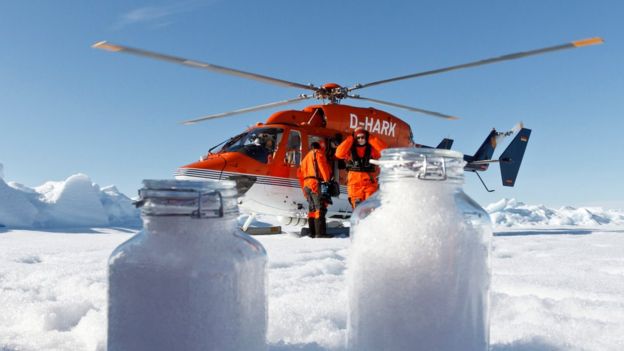Humanity must overhaul the global food system to stop the climate breakdown, according to a dire report released today.
The report, issued by the United Nations Intergovernmental Panel on Climate Change (IPCC), lays out in stark terms the disastrous environmental impacts of unsustainable agriculture and its potential to exacerbate the effects of climate change.
The world’s food system — from farming to transportation to grocery store packaging — is a top cause of deforestation, contributing approximately 30 percent of total greenhouse gas emissions, the report finds. It also projects that climate change from deforestation will create additional stress on agricultural land systems, adversely impacting crop yields and food security, and causing soil erosion. As countries continue to clear forests and peatlands for agriculture, their commitments under the Paris Agreement to cut climate-warming carbon emissions edge further out of reach.
In response to the report, conservationists called for the widespread restoration of forests, which absorb and store carbon from the atmosphere.
“Restoring forests is the only thing on Earth that can reverse the emissions that drive global warming,” Conservation International CEO M. Sanjayan said, calling the report a “wake-up call.”
A recent study quantified 1.7 billion hectares of treeless land around the world where forests would naturally grow and planting programs could thrive, without encroaching on food production or living area.
Continue reading at: New UN climate report is bleak, but there's a solution: trees
The report, issued by the United Nations Intergovernmental Panel on Climate Change (IPCC), lays out in stark terms the disastrous environmental impacts of unsustainable agriculture and its potential to exacerbate the effects of climate change.
The world’s food system — from farming to transportation to grocery store packaging — is a top cause of deforestation, contributing approximately 30 percent of total greenhouse gas emissions, the report finds. It also projects that climate change from deforestation will create additional stress on agricultural land systems, adversely impacting crop yields and food security, and causing soil erosion. As countries continue to clear forests and peatlands for agriculture, their commitments under the Paris Agreement to cut climate-warming carbon emissions edge further out of reach.
In response to the report, conservationists called for the widespread restoration of forests, which absorb and store carbon from the atmosphere.
“Restoring forests is the only thing on Earth that can reverse the emissions that drive global warming,” Conservation International CEO M. Sanjayan said, calling the report a “wake-up call.”
A recent study quantified 1.7 billion hectares of treeless land around the world where forests would naturally grow and planting programs could thrive, without encroaching on food production or living area.
Continue reading at: New UN climate report is bleak, but there's a solution: trees







